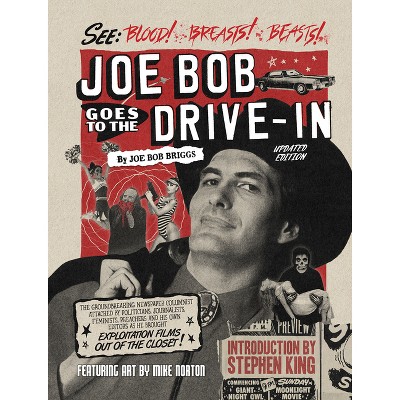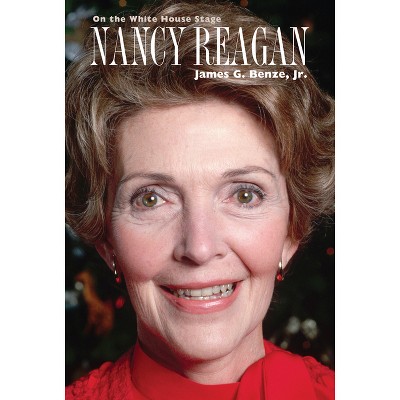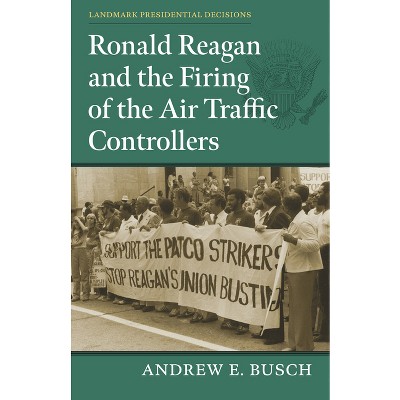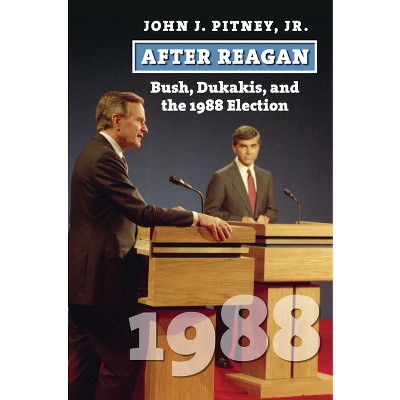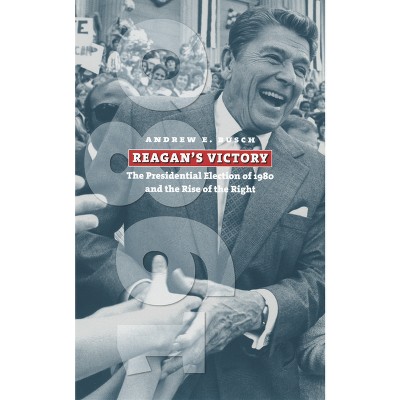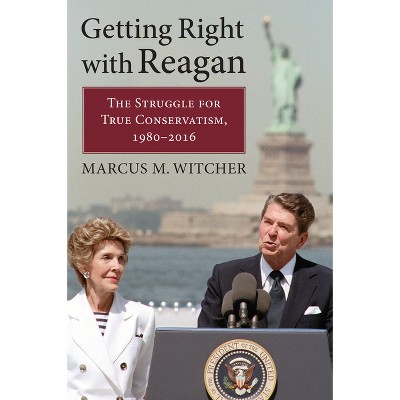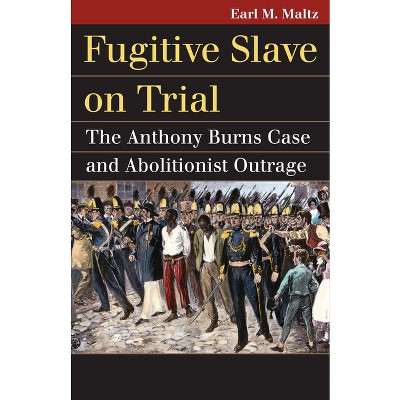Sponsored

Resisting Reagan - by Joe J Ryan-Hume
In Stock
Sponsored
About this item
Highlights
- A fresh assessment of how liberal organizers, activists, and politicians creatively rebuilt the Democratic Party's coalition, messaging, and strategies to find success during the Reagan Revolution.
- Author(s): Joe J Ryan-Hume
- 282 Pages
- History, United States
Description
Book Synopsis
A fresh assessment of how liberal organizers, activists, and politicians creatively rebuilt the Democratic Party's coalition, messaging, and strategies to find success during the Reagan Revolution.
"Liberalism is at a crossroads. It will either evolve to meet the issues of the 1980s or it will be reduced to an interesting topic for Ph.D.-writing historians." So stated the young Massachusetts Senator Paul Tsongas in June 1980 in the keynote address before the liberal organization Americans for Democratic Action. Tsongas's statement was a bracing critique of the liberal establishment and a call to creative action in the face of the new economic, social, and political realities that had engulfed the country since the 1960s. While liberal leadership failed to pivot enough to maintain the presidency--many were shocked by and dismissive toward Tsongas's message--Ronald Reagan's election forced Democrats to change their approach.
According to a widespread consensus, the country during the Reagan era moved inexorably to the Right as liberalism experienced a sustained period of decline and marginalization. On this view, an increasingly dominant conservative movement overwhelmed "New Deal" liberalism and forced Democrats to retreat or accommodate the new conservative order. Drawing on a wealth of archival research, Joe J. Ryan-Hume argues that liberalism had far more success during this period than historical orthodoxy would suggest. Ryan-Hume examines how grassroots liberal organizations--such as NOW, NARAL, and the Leadership Conference on Civil Rights--reformed their strategies in the wake of the Reagan Revolution to remain influential. By focusing on the nexus of grassroots activism, political ideology, and party politics, Resisting Reagan reveals the complex reorientation of liberalism and the Democratic Party in the 1980s. In doing so, it illuminates how the changing activist and electoral coalition reshaped the Democratic Party's political priorities, how liberal grassroots organizations creatively advanced their policy objectively, and how liberals pragmatically brokered legislation to protect or advance liberalism in an increasingly anti-government environment.
Liberals survived the Reagan era, according to Ryan-Hume, by changing tone instead of substance, building powerful coalitions, and designing new strategies to exploit emerging trends. By looking at 1980s politics from the bottom up, Resisting Reagan offers a surprising view at a period that offers lessons for today.
Review Quotes
"Deeply researched, forcefully argued, and full of judicious insights into the inner workings of American politics, Ryan-Hume's book challenges the dominant view of the Reagan era. Highlighting the ways that liberals, even when outside traditional sources of power, built institutions, constructed coalitions, and collaborated with members of Congress, this important book makes clear that the triumphs of the Right took place against a backdrop where the achievements of liberalism still mattered."--Bruce Schulman, coeditor of Media Nation: The Political History of News in Modern America
"Joe Ryan-Hume persuasively demonstrates that American liberalism persevered and adapted during the Reagan-Bush years. A significant contribution to the field, its accessible writing means that scholars and students alike can profit from reading."--Daniel Geary, author of Beyond Civil Rights: The Moynihan Report and Its Legacy
"Yes, the story of American politics during the 1980s is a story of partisan realignment and conservative ascendancy. But that is not the entire story, as Joe J. Ryan-Hume has now made clear. Using a refreshing blend of intellectual, institutional, social, and cultural histories, Ryan-Hume rethinks the meaning of political success through a non-traditional lens that prioritizes alternative power structures and activist voices frequently ignored in popular and scholarly understandings of the decade. In essence, he shows that liberals not only survived the Reagan years but, depending on how you define it, thrived. Without discounting conservatism's growing popularity during these years, Ryan-Hume shows that liberalism remained viable, vibrant, and frequently victorious."--Sean P. Cunningham, author of Bootstrap Liberalism: Texas Political Culture in the Age of FDR
"Joe Ryan-Hume offers a much-needed riposte to narratives that depict the 1980s as a decade when conservatism ran rampant while the Democratic Party and liberalism itself were moribund and marginalized. From the extension of the Voting Rights Act to the defeat of the Bork nomination, Ryan-Hume shows that liberal grassroots activists and congressional democrats were vigorous combatants in the political struggles of the 1980s. Forcefully argued and deeply researched, this book throws new light on the liberals who refused to yield to an 'Age of Reagan.'"--Patrick Andelic, author of Donkey Work: Congressional Democrats in Conservative America, 1974-1994
"In this well-written, well-researched, and timely book, Joe J. Ryan-Hume documents the legislative successes that liberals had during the 'Age of Reagan.' He concludes that far from failing to meet the challenge of the 1980s, liberalism redefined itself and built coalitions that were essential to their electoral victories in the 1990s and 2000s. I highly recommend giving this important book a read."--Marcus M. Witcher, author of Getting Right with Reagan: The Struggle for True Conservatism, 1980-2016
